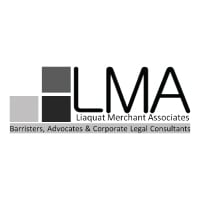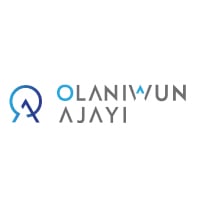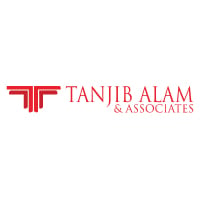
Chief legal and governance officer | Sohar International Bank SAOG










Elsamawal Idris
Chief legal and governance officer | Sohar International Bank SAOG
What are the key projects that you have been involved in over the past 12 months?
As expected, 2025 has been an eventful and busy year for Sohar International Bank SAOG (SIB) and the Legal and Governance Group that I lead. In addition to our business-as-usual activities, we have been leading and actively participating in several strategic and important projects across SIB.
In March 2025, the Central Bank of Oman (CBO) announced the designation of SIB as a Domestic Systemically Important Bank (D-SIB). This comes with enhanced regulatory requirements and oversight, and we have played a key role in ensuring compliance with these requirements, which is publicly available information.
In April 2025, SIB and Ahli Bank SAOG announced their intention to merge by way of incorporation, subject to due diligence and corporate and regulatory approvals. Under the announced merger, all assets, rights and liabilities of Ahli Bank would be assumed by SIB, and upon completion, Ahli Bank would merge with and into SIB. I led the legal stream of the merger process from SIB’s side until both banks announced the postponement of the merger towards the end of June 2025.
We have also supported the operations and expansion of our Riyadh branch in the Kingdom of Saudi Arabia, which is our first overseas branch. In addition, SIB has announced plans to open representative offices in other jurisdictions as part of its expansion strategy, with the Legal & Governance Group heavily involved in these initiatives.
We are also working on the proposed acquisition by SIB of up to a 100% stake in the Insurance House LLC (BIMA), Oman’s first fully digital insurance portal licensed by the Financial Services Authority (FSA), which enables customers to compare and purchase a range of insurance products. This acquisition remains subject to due diligence, documentation, and corporate and regulatory approvals.
Similarly, we recently announced SIB’s intention to acquire a majority stake in Neo Group Limited, a financial institution registered in the Kingdom of Saudi Arabia and licensed by the Capital Market Authority of the Kingdom of Saudi Arabia (CMA) to conduct asset management and financial advisory services. I am leading the legal stream of this transaction.
Finally, we are finalising SIB’s issue of up to 150,000,000 unsecured subordinated perpetual additional tier 1 capital instruments, comprising up to 150,000,000 bonds with a green shoe option of an additional 50,000 bonds, on a private placement basis. The legal and governance group has been leading the legal stream of this issue, which is expected to close soon.
How do you approach managing legal aspects during periods of instability or crises, and how does your legal strategy align with the broader business strategy to ensure the organisation’s resilience?
When attending to these matters, it is critical not to view legal risks, crises and legal strategy as separate issues. They are closely intertwined with the overall organisational risk, crisis management and business strategy. Only by considering them in this context can we see the complete picture. The chief legal executive in any organisation succeeds only when they understand the business and are able to contribute to its growth. This requires understanding the risks or crises to which the organisation is, or may be, exposed, contributing to the development of the business strategy, and creating a legal strategy that aligns with it.
With this in mind, it is essential to ensure that legal risk is embedded in the organisation’s crisis management frameworks, policies and practices. Managing legal risks during crises or periods of instability requires not only responding to legal threats, but also adopting a holistic approach that includes understanding the legal environment in which the organisation operates, preparing for potential legal challenges, and aligning legal strategies with broader crisis management efforts.
Legal counsel should play a central role in crisis management by predicting potential legal challenges, advising on associated risks, ensuring that the organisation’s responses comply with applicable laws and regulations, and providing input throughout the decision-making process. They should also contribute to the design and execution of communication strategies, including public disclosures, responses to regulatory inquiries, and communication with other stakeholders. Legal counsel are uniquely positioned to lead certain aspects of crisis management, such as legal risk assessment, contract management, litigation management, evaluation of insurance coverage, and crisis communication. Early involvement of legal counsel is therefore critical. Legal counsel should be part of a well-organised and aligned crisis management team that communicates and collaborates effectively.
How can general counsel foster a corporate culture that supports ESG principles and compliance across all levels of the organisation?
I advocate for governance-centred approaches led by the general counsel to cultivate a culture in which ESG compliance, accountability and strategic integration flourish throughout the organisation. The GC plays a pivotal role in embedding governance frameworks that align with ESG values at every organisational level, thereby shaping a corporate culture deeply rooted in governance principles.
Key governance actions for GCs to embed an ESG culture include establishing ESG governance structures and setting the tone at the top. The GC should advise the board on adopting comprehensive governance frameworks and recommend forming or designating committees responsible for ESG oversight or integrating ESG duties within existing board committees. This ensures that ESG accountability and strategic oversight are anchored at the highest levels of governance.
Demonstrating leadership commitment to ESG is equally important. The GC must help cultivate a genuine and transparent commitment to ESG within the leadership team by raising awareness of its strategic importance and embedding these principles into the company’s core purpose and reputation.
Integrating ESG into governance policies and practices is also essential. By incorporating ESG considerations into governance rules, decision-making and compliance processes, the GC ensures active management of ESG risks, ethical conduct, transparency and regulatory compliance. This extends to areas such as executive remuneration, anti-corruption measures, whistleblower protections and reporting frameworks, where the GC’s role in reviewing and controlling governance documents is crucial.
Promoting ESG education and training is another key responsibility. The GC should champion continuous education initiatives to enhance employee understanding and ownership of governance-related ESG principles, fostering a culture of compliance and accountability throughout the organisation.
Aligning compliance and risk management with ESG is critical. The GC must link ESG governance with the company’s risk management framework to integrate ESG compliance and risk considerations into operational controls, ensuring clear reporting to stakeholders and regulators while strengthening sustainable business practices.
Fostering transparent ESG reporting and disclosure is also vital. The GC should guide the organisation towards transparent disclosure of governance practices in line with ESG reporting standards such as GRI, CSRD and TCFD, building trust with investors and stakeholders and reinforcing external governance accountability.
Practical governance elements to embed in culture include defining clear ESG roles and responsibilities at all organisational levels, establishing ESG-focused performance metrics and incentives for executives and employees, maintaining transparent communication channels for ESG policies and ethical concerns, and ensuring active board engagement in ESG risks and opportunities through regular reporting and dedicated governance forums.
Through these governance-driven actions, the GC ensures ESG principles transcend mere compliance to become a foundational element of the organisation’s governance culture, promoting sustainable and ethical corporate citizenship.
head of legal | Bank Sohar, Oman
‘A very articulate and knowledgeable lawyer’, Elsamawal Idris stands out from the crowd, according to sources, with exceptional understanding of Oman’s banking system. Formerly legal head to Sudan’s Bank of...